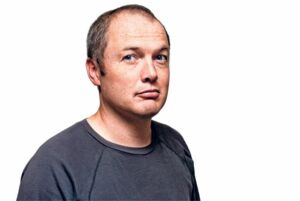Things to do
Inside this month: And we could run it with footage of him killing Zulus!
This article is more than 9 years old.

So we’ve learnt over the last week that the members of the Academy hate black people. But probably not as much as themselves. Granted, 2005 best film winner Crash wasn’t exactly The Colour Purple, the joint record-holder for the most nominations without a win, but its anti-racism theme still managed to beat off the gay rednecks – an either/or 76 percent demographic amongst Academy voters apparently.
Still, has the reaction been proportionate? The Economist confirms that American black people in the 21st century – and there we were thinking they were global awards – are over-represented at the Oscars in the acting categories and particularly in the number of wins. Hispanics and other ethnic groups aren’t.
Given the real issue at heart is the lack of non-white scriptwriters and directors working in the film industry, why are so many column inches being dedicated to the actors. Oh yeah, because they’re actors and no-one cares about the rest.
Open season on octogenarians
Journalists, particularly the non-racist ageist ones, have been bringing it up with every actor in the business, and the Beeb struck gold with Michael Caine.
“So again your message really to those non-white actors is be patient, it will come,” a BBC interviewer proffered. To which the amiable, polite, slightly doddery 82-year-old said: “Be patient? Of course it will come.” Headlines screaming “Caine urges black actors to be patient” duly followed.
It reminds me of the time I said to my father, also an octogenarian: “That’s the problem with the French – the bastards.” To which he replied, loudly because he’s deaf: “The French! … bastards!?” and I ran it in the newspaper as “My father says all French people are bastards!” because I knew it would be clickbait.
Michael Caine is laid-back, god bless him, and an elder statesman of cinema. He’s paid his dues and listening to him is a privilege. Can you imagine the anecdotes he’s got – well yes, that’s all we can do. We’ll never going to hear them because the BBC are too busy stitching him up.
Seriously, do we really want our cultural figures to go the same way as sports stars, walking down the red carpet with their hands covering their mouths?
Granted, earlier in the interview Sir Michael did say: “You can’t vote for an actor because he’s black,” which wasn’t exactly the height of articulation. But he was probably in character as Alfred thinking about The Butler. Or any recent films featuring Jada Pinkett Smith or Spike Lee.
Lee’s decision to not attend is a tough one for the Academy, as it confirmed in November he’s the youngest male recipient of an honorary Oscar since the 1960s. Of course, awards like this tend to confirm that a person’s career is over …
Let’s get jiggy with Juliet
What would William Shakespeare have said if he got an award? A big-up for female performer rights, maybe. An actor himself, it must have been tiresome playing Romeo and having to snog 14-year-old boys.
Two plays are starting in February to honour the 400th anniversary of his death. The first is the welcome return of That Theatre’s 2012 play Shakespeare Unplugged (Feb 17-Mar 20), which is set in a pub that the audience can actually sit in at Krudttønden theatre (is it just me or is it a relief that I don’t have to explain where that is anymore).
While the second, Vivienne McKee’s Shakespeare’s Ghost (Feb 29-Mar 19), imagines a meeting between the Bard and a playwright who had a habit of getting barred, Christopher Marlowe. Exactly two months Will’s senior, Marlowe died in 1593. Or did he?
Going out to Suede
Talking of dying young, the guest of honour at the Bob Marley Birthday Celebration (Feb 12) was just 36 when he died of metastatic melanoma.
But isn’t that always the case with music icons. Suede’s anthem ‘So young’ (Feb 1) could have been played at an awful lot of musicians’ funerals in the 1960s and 70s – especially as it’s about heroin abuse.
Still, winter’s almost done, which might explain why the big events are meatier in February. Winter Jazz Festival (see next week’s supplement) and the Frost Festival (Feb 5-26) are practically a month long, while the Fashion Festival (Feb 3.7), Copenhagen Winter Pride Week (Feb 1-7), Copenhagen Dining Week (Feb 14-21) and Fastelavn (Islands Brygge Culture, Feb 7; Esrum Kloster, Feb 16-21) are all worth leaving your homes for.
And then to complete the month, we’ve got the Oscars in all its black-listed, lily-white glory.










































